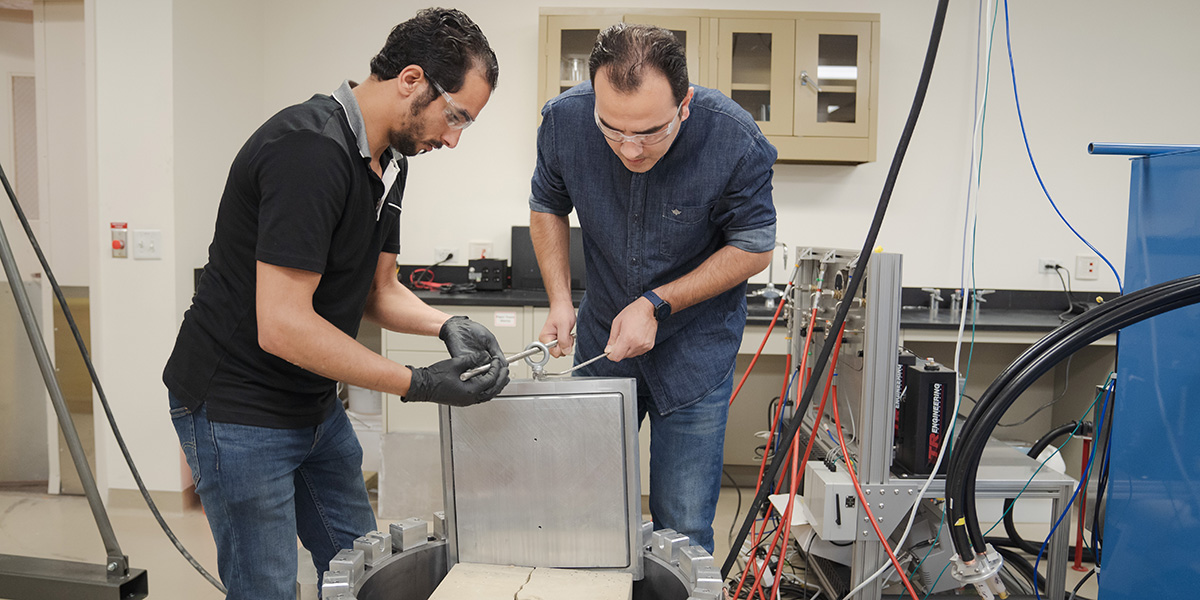
Learn from world class academic researchers and industry professionals to address the challenges of the world’s energy needs.
Curriculum Overview
The Bachelor of Science in Petroleum Engineering program at the University of Houston is designed to cover the broad fundamentals and advanced topics of petroleum engineering including drilling, reservoir, formation evaluation, petrophysics, production and reservoir engineering. In addition, broadening electives include geoscience, project management and economics.
The 127-semester-credit-hour curriculum is designed to enable students qualified to start in Calculus I to complete a BS in four years. The curriculum includes the core curriculum mandated by the State of Texas. Students must follow the degree plan in place upon admission to the university. All students should consult with the Academic Advisor for Petroleum Engineering to ensure their course selections meet the degree plan requirements.
Careers and Internships

Almost half of Houston’s economy is driven by energy, with more than 3,600 energy-related companies based in Houston. All the major oil and gas companies have operations in Houston, and the region boasts almost 40,000 jobs just in oil and gas extraction, representing a third of such positions worldwide!
Projections from the United States Energy Information Administration predict a substantial increase in demand for energy of all types over the next 30 years. They predict that oil and natural gas will constitute about 50 percent of the total energy supply throughout that period.
Our students are expected to hold internships in some of the world’s most prestigious offices while working to obtain a bachelor’s degree in petroleum engineering. Internships may be summer-based or may involve 10-20 hours per week throughout the year while taking classes, which is difficult at universities that aren’t located in the city of Houston.
Interns receive compensation and valuable experience in real petroleum engineering assignments, enhancing the opportunity for direct hire upon graduation.
Student Organizations
Students are encouraged to join academic and professional organizations to build leadership, communication, and networking skills. Members of student organizations receive career guidance from engineering professionals and participate in activities that promote engineering.
- Society of Petroleum Engineers (SPE)
- American Association of Drilling Engineers (AADE)
- Pi Epsilon Tau (PIET)
- American Petroleum Institute (API)
- American Association of Petroleum Geologists (AAPG)
- American Rock Mechanics Association (ARMA)
- Society of Petrophysicists and Well Log Analysts (SPWLA)
Standards and Expectations
All PETR students are expected to meet all ethical standards of UH as described in the Student Handbook under “Academic Honesty”. In light of the high professional standards for ethical behavior required of all petroleum engineers, and in light of the potentially severe consequences to health, safety, and the environment of unethical behavior on the part of a petroleum engineer, severe consequences will result from any ethical breech by a PETR student, up to and including immediate expulsion from the program.
In addition, of course, PETR students are expected to exceed certain minimum academic performance standards outlined here to remain in good academic standing. These provisions describe minimum performance, but of course, the petroleum industry is seeking high performance.